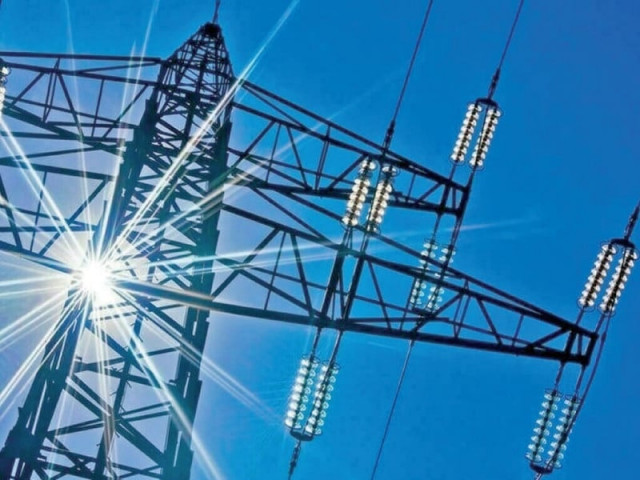Power sector suffers Rs589b loss
Electricity theft, less recoveries cause huge loss; govt to study different models

As consumers start facing the sweltering heat of summer and the pain of load-shedding, the power sector seems to be getting out of control of the Shehbaz Sharif-led government as electricity theft and less-than-required bill recoveries are estimated to have caused a loss of Rs589 billion so far in the current financial year.
With hefty losses and unchecked electricity stealing, the government has ruled out any plans to hand over control of power distribution companies (DISCOs) to provinces. Instead, it has decided to launch a study for chalking out different workable models to improve the performance of these companies.
It believes that the handing over of DISCOs to provinces will increase financial burden of the federal government.
Regarding the proposal of private sector participation in the power sector, the government noted that a decision in that regard was made by the caretaker government without any concrete workable plan.
The minister for energy observed that the caretaker cabinet’s decision to clinch concession agreements was not based on proper technical, legal and commercial due diligence.
Sources told The Express Tribune that first meeting of a committee constituted by the prime minister on studying various options for giving up management control of DISCOs was held recently.
The committee had been mandated to work on various options and recommend an appropriate way forward either through “provincialisation”, privatisation or concession/management contracts. All members of the committee backed the option of giving control of DISCOs to provinces, saying the federal government may not be able to resolve problems afflicting the distribution side of the power sector.
Rather, the problems may be shifted from the centre to provinces, if they took over the distribution firms.
Additional secretary of the Power Division briefed the committee about the conditions outlined by the governments of Sindh and Khyber-Pakhtunkhwa for taking over control of DISCOs falling within their jurisdictions.
The energy minister pointed out that all the four provinces had different views on running the distribution companies. Owing to the lack of clarity and ownership of liabilities by the provinces, it was apprehended that the proposal would put more financial burden on the federal government.
Hence, the option of provincial control over DISCOs was discarded by the committee with consensus.
The additional secretary recalled that the caretaker cabinet had approved the participation of private sector in the operation of DISCOs through long-term concession agreements and their privatisation later.
He highlighted all the decisions made while reviewing a summary submitted to the Cabinet Committee on Privatisation (CCOP), which was also ratified by the federal cabinet.
As per the decision of the cabinet, the Ministry of Privatisation will lead the process of inviting private sector participation in DISCOs.
The committee was apprised that due to consistent failure to privatise those companies, the option of long-term concession agreements was considered to take out the management of DISCOs from the government’s control.
It was noted that the financial burden on account of electricity theft and the lack of recoveries was increasing with every passing year. Only this year, DISCOs are estimated to lose Rs589 billion, which may increase in the coming years.
It was one of the reasons why the option of concession agreements was adopted as privatisation was not practically possible due to the complexities of asset and property transfer, huge losses of DISCOs and labour union challenges.
The energy minister observed that the caretaker cabinet’s decision on concession deals required due diligence including the impact on tariff and fair competition owing to the large size of DISCOs.
He was of the view that the concession model was proposed without considering the eventual tariff regime, its impact on consumers, the structure of future electricity market and the expected revenue streams.
Under the concession model, the minister noted, the poor performing DISCOs would have much higher tariffs as compared to the good performing DISCOs.
He informed the committee that meetings had been held with the World Bank and the International Finance Corporation (IFC) but proper answers to his basic questions could not be found.
The additional secretary told the meeting that the concession model, approved by the caretaker cabinet, involved a plan comprising prior actions to respond to all intricacies. The plan was shared with the committee.
Expressing its opinion, the committee insisted that a detailed study with proper terms of reference needed to be conducted by consultants to have proper understanding of the concession model and its feasibility in Pakistan’s power sector. It was pointed out that the Power Division also required professional expertise by acquiring the services of professionals and consultants.
Privatisation secretary contented that the transaction and financial adviser, to be hired for the purpose, would focus on the transaction only rather than the impact on the whole structure or internal intricacies of the power sector.
Published in The Express Tribune, May 15th, 2024.
Like Business on Facebook, follow @TribuneBiz on Twitter to stay informed and join in the conversation.


















COMMENTS
Comments are moderated and generally will be posted if they are on-topic and not abusive.
For more information, please see our Comments FAQ